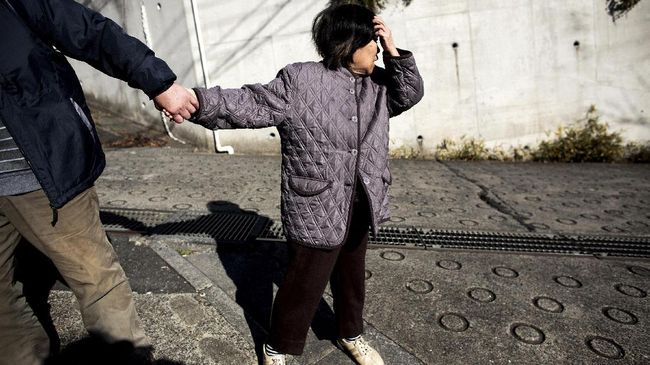Jakarta, CNN Indonesia –
As the moon Alzheimer worldwide, September is special. Not only for sufferers, but also for caring for people with dementia (ODD).
Dementia Care Trainer and UGM Lecturer Sri Mulyani said that communication often becomes a barrier between nurses and ODD.
Ineffective communication is often the mastermind behind the nurses’ frustration, in extreme cases it can trigger suicidal thoughts from the ODD nurse.
Sri said understanding the needs of ODD is the key to communicating effectively with people with dementia. Here are powerful tips for communicating with ODD:
1. Attention
In accompanying ODD, stress is a natural thing for nurses to feel. Even though they care for the closest people, a change in attitude by ODD can make the companion feel strange and do not understand their wishes.
However, Sri said it was important for the companion to pay attention to small things, make the interactions fun. The little thing you can do is introduce yourself, avoid starting a conversation that can make ODD feel cornered.
For example, don’t ask who you are why you are ODD, avoid making ODD feel guilty for not remembering their partner. However, introduce yourself every time you greet ODD so they feel comfortable.
Another thing that can be done is to use a nickname they like, this can make ODD feel close to their companion. In addition, reduce distraction as if it startles them despite the intention to break the ice.
2. Simple Communication
In communicating with ODD, it is advisable to communicate using simple words that are easy to understand. Also, use straightforward, straightforward statements.
It should be understood that ODD often forget what they want to do. For example, if ODD forgets to drink the water they ask for, remind them in simple language and don’t question the motive for their behavior.
Sri said that usually they just forgot and if reminded in polite terms, communication shouldn’t be difficult.
Furthermore, do not treat ODD like a child and if it reminds them of trivial things like buttoning clothes or combing their hair, use positive sentences and avoid making ODD feel discouraged.
If it still doesn’t work, show me how to do this gradually. If ODD feels humiliated, it may be that the reactions shown are negative and communication will be difficult.
For non-verbal communication, the principle is the same. Take your time, be calm, and use non-stressful body language and tone. Also, maintain level eye contact so instructions can be understood. If necessary, give physical touch. However, don’t violate ODD privacy.
3. Acknowledge the Feelings of ODD
Sri said as a companion, understand if people with dementia easily feel sad because of the reality they are facing. They often get angry and act difficult. It could be, resentment is shown because ODD wants to be understood.
Although challenging, this is not a reason for the companion to show frustration back. Usually, if the chaperone is gentle and acknowledges ODD’s concerns, the communication will change course.
She also suggests using non-verbal cues such as nods, shakes, and smiles in response.
4. Support
Emphasized to the companion not to talk about ODD or worse, make fun of his behavior or words in front of him. He also mentioned something that the companion often missed, namely accidentally complaining in front of ODDs. This can make a person with dementia feel bothersome and indirectly form a dividing wall.
Also, listen to what they have to say even though the conversation has been repeated many times. Don’t make ODD feel they are senile and what they say is unattractive.
Most importantly, find out why communication with ODD is problematic, whether it is ineffective communication, unfulfilled desires, or an unfavorable environment. Usually, continued Sri, ODD is the last factor that triggers unpleasant behavior from existing interactions.
He also called it normal for companions to feel stressed and don’t be embarrassed to ask for help from experts or family support if needed.
(yes / dea)
– .


